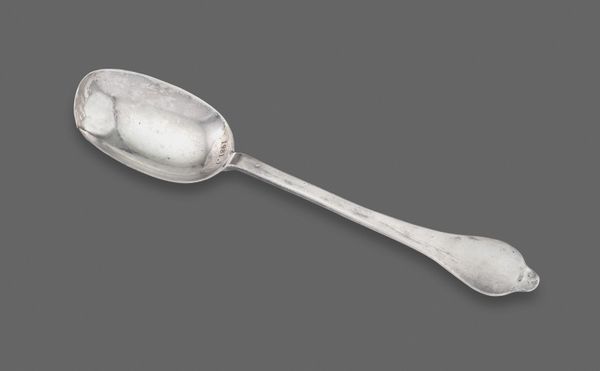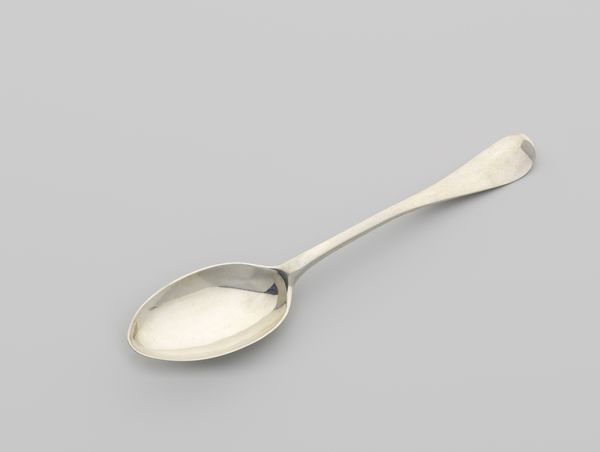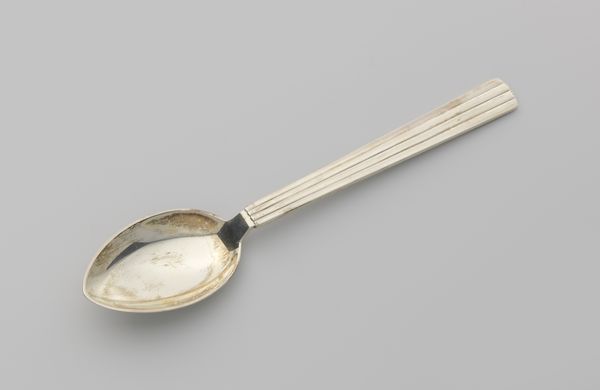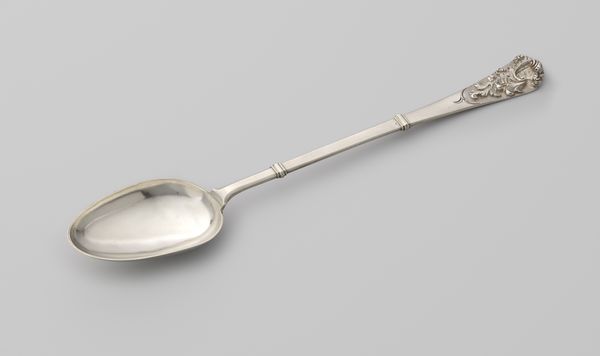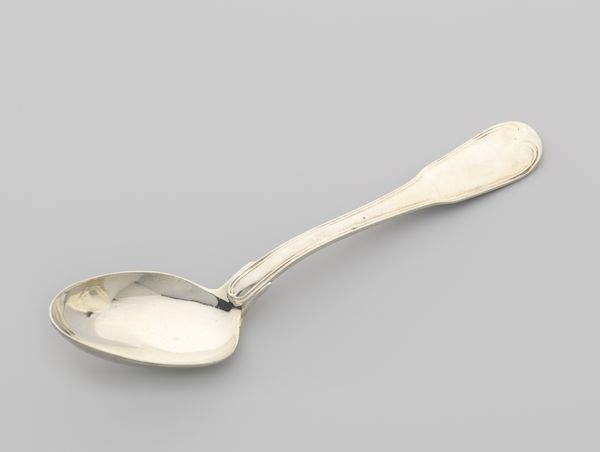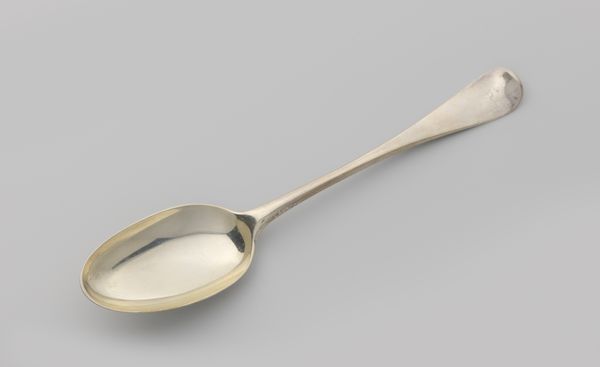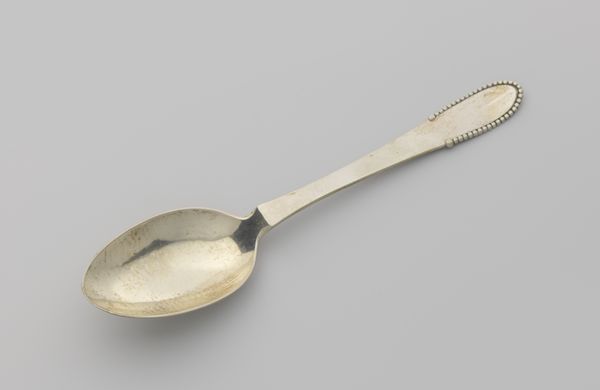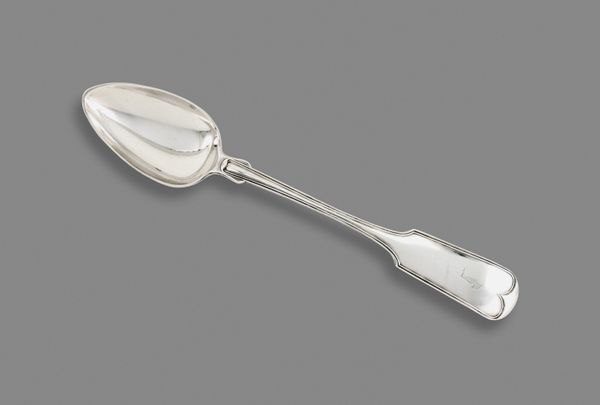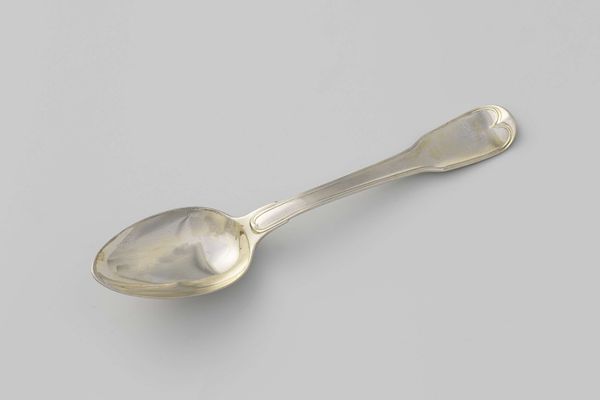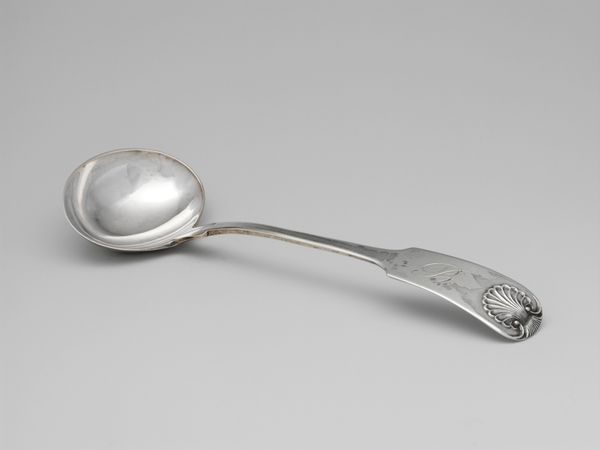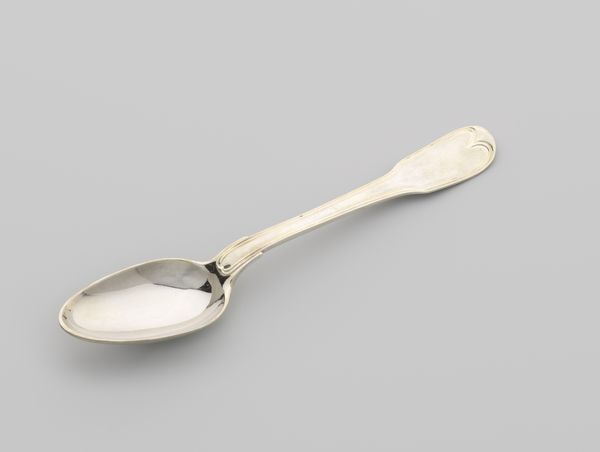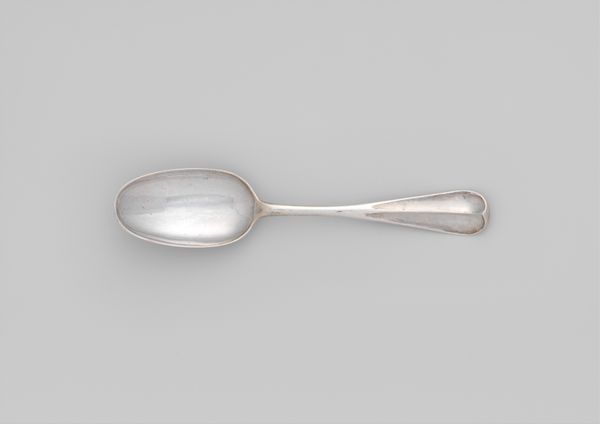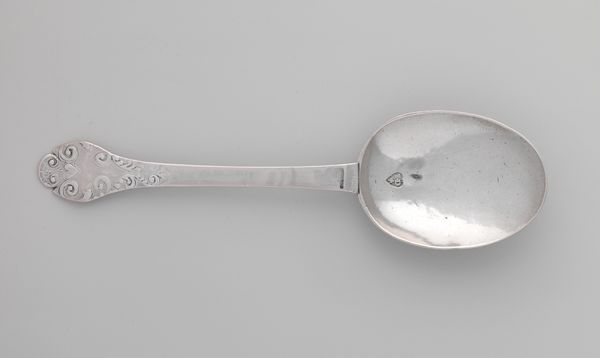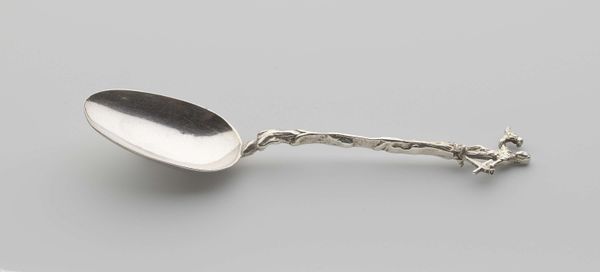
silver, metal
#
silver
#
baroque
#
metal
#
decorative-art
Dimensions: L. 18.4 cm (7 1/4 in.)
Copyright: Public Domain
This is a silver spoon made by Jonathan Clarke, a silversmith active in London during the mid-18th century. While seemingly mundane, this object speaks volumes about the social and economic landscape of its time. Consider the burgeoning consumer culture of 18th-century England. The rise of a wealthy merchant class fueled a demand for luxury goods, and silversmiths like Clarke catered to this market. Silverware, once exclusive to the aristocracy, became a symbol of status and refinement for the aspiring middle class. London’s Goldsmiths' Company played a crucial role in regulating the quality and standards of silver production, shaping the industry and ensuring the value of these coveted objects. To fully appreciate this spoon, we can consult trade directories, probate records, and the archives of the Goldsmiths' Company. These sources allow us to trace the circulation of silverware, understand the networks of artisans involved in its production, and examine the social rituals surrounding its use. By situating this object within its historical context, we can unlock its hidden meanings and gain a deeper understanding of 18th-century society.
Comments
No comments
Be the first to comment and join the conversation on the ultimate creative platform.
